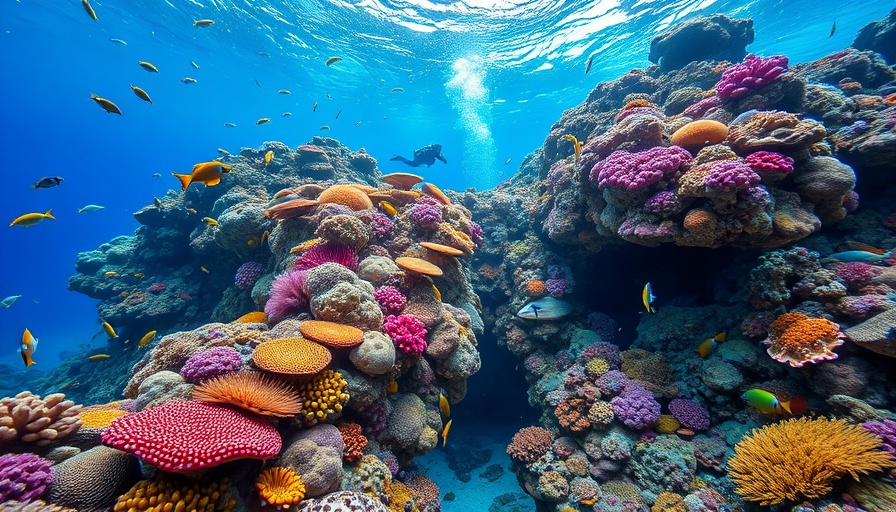
The Global Push for Marine Conservation: Why 30% Matters
In a significant global commitment, nearly every nation on Earth aims to protect 30% of their oceans by the year 2030. While this ambitious goal is commendable, only about 8% of the world’s oceans are currently under protection. Enter the Revive Our Ocean initiative, a collaborative effort spearheaded by influential naturalist David Attenborough and various environmental organizations. This initiative seeks to accelerate the creation of Marine Protected Areas (MPAs) to meet this pressing deadline.
The Groundbreaking Approach of Revive Our Ocean
The Revive Our Ocean initiative breaks new ground by focusing on community-led marine conservation efforts. Kristin Rechberger, the initiative’s founder, emphasizes the need for coastal communities worldwide to establish their own MPAs. The initiative acknowledges that while the ocean is overexploited, it holds immense potential for recovery if communities take immediate action.
Revive Our Ocean aims to make the MPA establishment process less daunting by providing practical tools and expert guidance. Highlighting seven countries—Indonesia, the Philippines, Mexico, Turkey, Greece, Portugal, and the UK—the initiative’s localized approach seeks to tailor solutions to various ecological and economic landscapes.
Turning the Tide: Benefits Beyond Conservation
One critical aspect of the Revive Our Ocean initiative is to challenge misunderstanding about MPAs. Often seen as a drag on local economies, MPAs can actually stimulate economic growth. Findings from a recent study covering 34 countries proved that marine protections promote tourism and fishing industries. In fact, profits from several MPAs have soared into the billions!
Attenborough’s powerful quote, “If we save the sea, we save our world,” underlines the reality that healthy oceans are integral to global well-being. Advocating for MPAs not only aids marine biodiversity, but it supports livelihoods, offering a dual benefit.
Overcoming Challenges: Addressing the Roadblocks
Despite the clear advantages of MPAs, establishing them can be an uphill battle. Government bureaucracy and lack of awareness about their economic potential often deter communities from pursuing MPAs. The Revive Our Ocean initiative aims to alleviate these barriers by equipping communities with the “MPA How-To” guide, which provides strategies to navigate regulations and design sound business plans for their marine spaces.
This grassroots approach is crucial in building a conservation culture that values ocean health as much as land-based initiatives. As awareness and understanding grow, communities can cultivate advocacy that leads to action.
Inspiring Action: Your Involvement Can Make a Difference
The ongoing efforts to expand MPAs are not just for policymakers or environmentalists; everyone has a role to play! As wellness enthusiasts and eco-conscious individuals, understanding the interconnection between ocean health and personal well-being empowers you to advocate for sustainable practices. Simple actions, such as supporting businesses that source sustainably and participating in beach cleanups, can make a significant difference.
Awareness can spark conversations—talk to your friends and family about the importance of ocean conservation. The more informed and connected we become, the stronger our collective efforts will be toward protecting our oceans.
Final Thoughts: The Future of Our Oceans
As we move towards 2030, the Revive Our Ocean initiative sets a precedent for effective marine conservation through community engagement. Its success could redefine how we approach environmental protection, emphasizing that local efforts can yield global benefits. By being proactive about our ocean health, we can ensure future generations will inherit a thriving marine ecosystem that supports life in every form.
The journey to 30% may be long, but with initiatives like Revive Our Ocean and your support, it’s a goal well within reach. Are you ready to dive in and make a difference? Together, we can protect our oceans and, in doing so, our planet.
 Add Row
Add Row  Add
Add 




 Add Row
Add Row  Add
Add 

Write A Comment